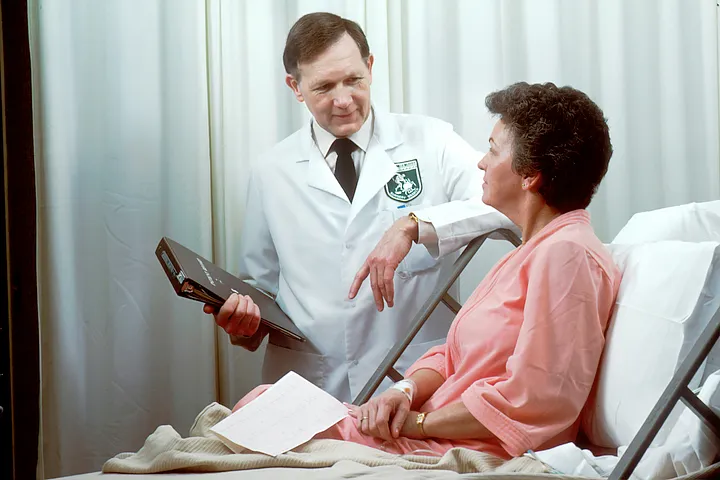AI is about to make a big debut in hospitals

If you’ve ever been to a hospital, you’ve probably seen an ECG (electrocardiograph). It’s the pulse-measuring device giving off that iconic beep.
But this device, invented over a century ago, hasn’t seen much meaningful innovation. Fundamentally it’s still the same thing today: Electrodes detect the minute electrical changes arising from the heart muscle’s pattern, translating its rhythm into the familiar peaks and valleys of an ECG readout.
What hasn’t changed is the nature of cardiovascular disease. In the last century, humans have become more sedentary, often more stressed, and almost universally have much worse diets. Seed oils only relatively recently became a mainstream part of our diets. In some ways, we’ve become more unhealthy than ever.
As a result, cardiovascular disease claims over 17 million lives annually, making it the leading cause of death worldwide. Despite advancements in treatment, early detection remains a challenge. Traditional ECGs, while valuable, have limitations in identifying subtle abnormalities that could indicate underlying heart disease.
This is where HeartSciences comes in. This innovative company is on a mission to bridge the diagnostic gap in frontline cardiac screening with their groundbreaking MyoVista Wavelet ECG (wavECG) device.
The AI crystal ball
The MyoVista wavECG is no ordinary ECG machine. By harnessing the power of continuous wavelet transform (CWT) signal processing and artificial intelligence, this device uncovers hidden information related to a patient’s CVD risk.
In short, it’s giving doctors a better understanding of your heart health. The device categorizes the potential risk of abnormal LV relaxation as negative, borderline, positive, or highly positive, providing crucial insights that traditional ECGs might miss.
But don’t just take their word for it — -the science backs up MyoVista’s effectiveness. A recent peer-reviewed study found that the MyoVista AI-ECG model significantly outperformed existing methods for detecting subclinical LV dysfunction in patients with type 2 diabetes.
Studies showed that an AI-ECG algorithm developed using MyoVista technology could predict the risk of major adverse cardiovascular events (MACE) with impressive accuracy. By providing effective front-line solutions for detecting heart disease in at-risk patients, they’re bridging the diagnostic gap in cardiac screening.
This can enable a future where a simple, non-invasive ECG test could accurately identify your risk of heart problems, allowing for early intervention and potentially saving your life. With MyoVista, that future is closer than you might think.
The future of cardiac care
As we look to the future of healthcare, it’s innovations like MyoVista that will make a difference. We can’t expect everyone to stop eating junk food and start working out, can we? While lifestyle changes are great, the fact of the matter is cardiovascular disease is an enormous problem, and it’s only getting worse despite everything humanity has tried.
By harnessing the power of AI and applying it to tried-and-true diagnostic tools, HeartSciences is opening up new possibilities for early detection and preventive care.
So, the next time you see an ECG machine, remember — it might just be your new best friend in the fight against heart disease. And with the MyoVista wavECG device at the forefront of AI-powered cardiac diagnostics, you might find yourself saying, “my doctor is using AI, and I couldn’t be happier about it.”